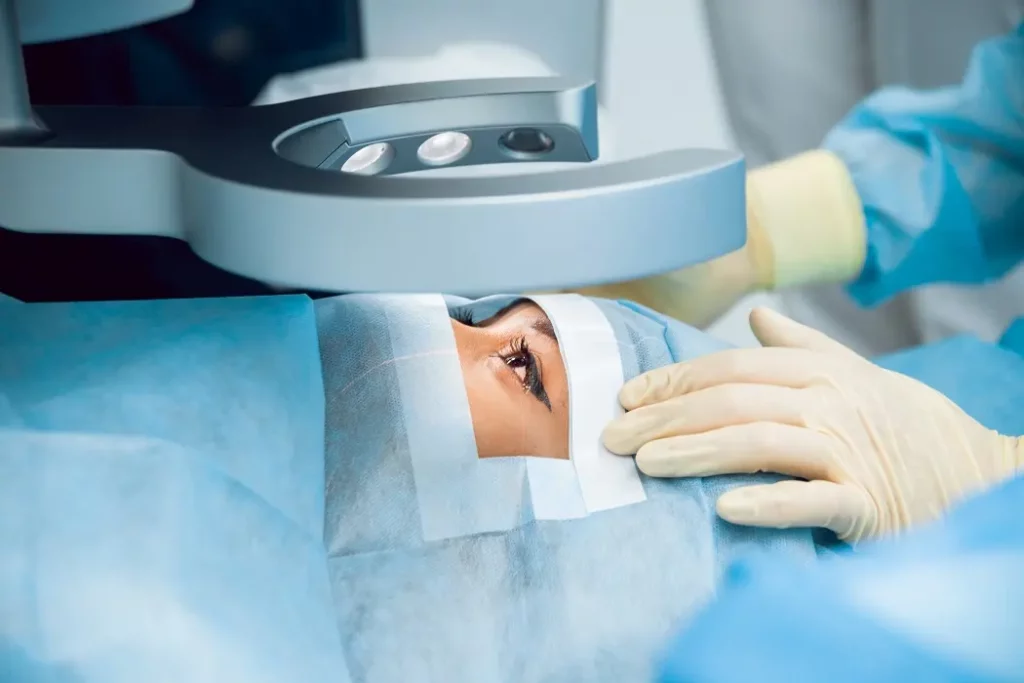All Categories
Featured
Table of Contents

Regular eye evaluations are vital for maintaining excellent vision and discovering potential eye health problems early. However, the regularity of these exams can differ substantially based on a person's age, lifestyle, and total wellness. Recognizing the suggested timetable for eye examinations can help ensure that individuals of all ages receive suitable care and tracking for their eye health and wellness.
Newborns and Toddlers (0-2 Years)
For kids and infants, eye examinations are critical for discovering any type of possible vision issues beforehand. The American Academy of Ophthalmology suggests that a kid's first eye examination need to take place at around 6 months of age. During this preliminary check out, the eye treatment professional will certainly evaluate the child's aesthetic growth and check for any apparent eye issues.Following this very first exam, it is recommended that children have an additional eye exam at age 3. This visit will focus on analyzing the kid's overall aesthetic function, including eye alignment and the ability to track things. If no concerns are detected, the following examination should be arranged prior to the child starts college, normally around age five or 6.
School-Aged Youngsters (6-18 Years)
As soon as kids get to school-age child, regular eye exams should be scheduled every one to 2 years. Vision is essential for learning and advancement, and many institutions conduct vision testings. These testings do not replace a comprehensive eye exam by an eye treatment expert.For children associated with tasks or sporting activities needing substantial aesthetic focus, yearly eye tests may be recommended. Additionally, if a child exhibits signs of vision problems-- such as problem reading, squinting, or regular frustrations-- a see to the eye physician need to be set up asap.
Youthful Grownups (19-39 Years)
Young person normally have fewer vision adjustments than older age teams, however normal eye examinations continue to be crucial. The basic recommendation is to schedule an eye exam every 2 years during this duration. Individuals with particular risk aspects-- such as a household history of eye disease, diabetic issues, or those who put on get in touch with lenses-- should consider yearly eye exams.Additionally, those who invest considerable time on electronic tools may experience digital eye stress. If symptoms such as dry skin, tiredness, or obscured vision occur, it might be a good idea to see an eye care professional quicker.
Adults (40-64 Years)
As people get in midlife, the probability of developing vision issues increases. Grownups aged 40 to 64 need to arrange eye tests every one to 2 years. This age group may begin to experience presbyopia, a natural age-related problem that makes it testing to concentrate on close items. Eye exams can likewise help discover other typical age-related conditions such as glaucoma, cataracts, and macular degeneration.If people in this age group have threat aspects like hypertension or diabetes, they may require even more regular evaluations to monitor their eye health carefully.
Seniors (65 Years and Older)
For elders, regular eye tests become even a lot more crucial. The American Optometric Organization recommends that people aged 65 and older have an eye examination at the very least when a year.Conclusion.
Comprehending the ideal routine for eye examinations based on age is important for maintaining ideal eye health throughout life. From infants to seniors, regular eye assessments play a critical role in discovering issues early and making certain that vision stays sharp. By sticking to these standards and speaking with an eye care expert, individuals can take proactive steps towards preserving their vision and general health and wellness. Whether it's a child's initial check out or an elderly's annual examination, prioritizing eye treatment is an investment in long-lasting well-being.Latest Posts
Experience Coastal Beauty at Deauville Inn
Published Apr 14, 25
1 min read
Experience Coastal Beauty at Deauville Inn
Published Apr 03, 25
1 min read
Discover Leisure at the Claridge Indoor Pool
Published Feb 12, 25
1 min read